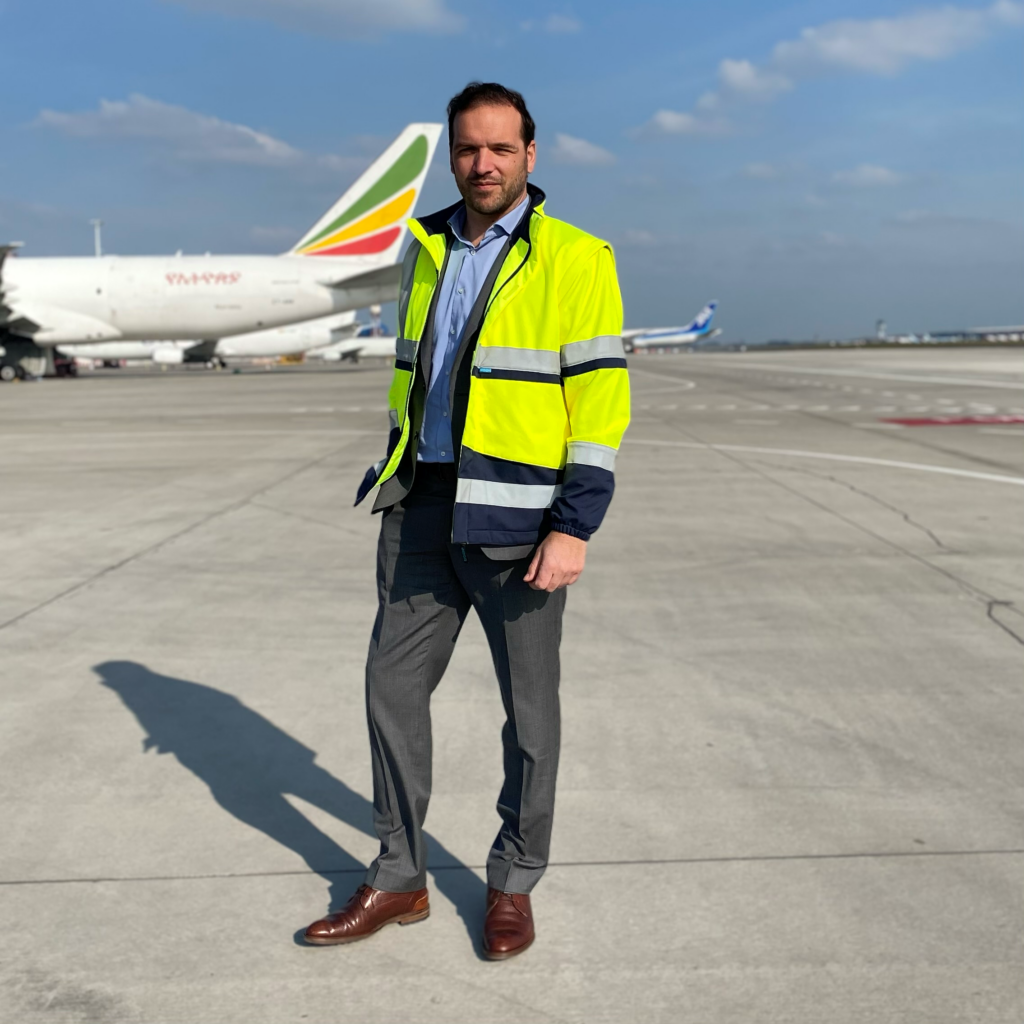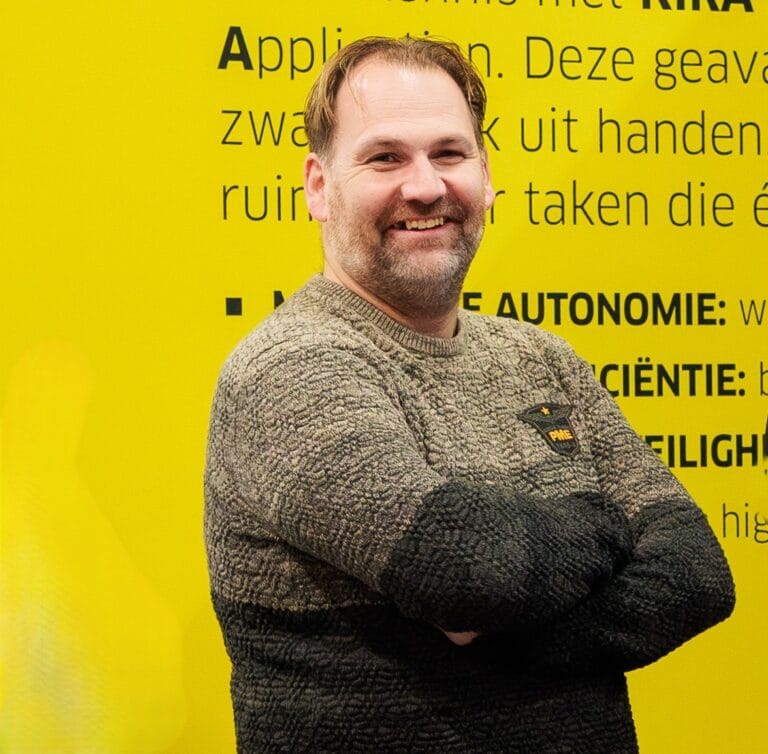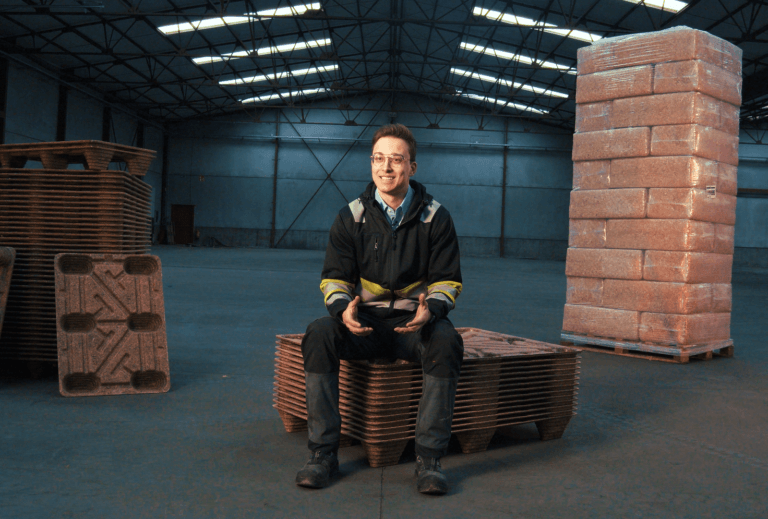Geert Aerts (Brussels Airport Company): ‘Innovation pays off: we are leaders in digitalisation’

Brussels Airport Company (BAC) has just become Innovation Partner of Log!Ville. The airport – previously Supporting Partner – has been rolling out its SHIFT 2027 strategy since 2022, which rests on three pillars: strengthening its position as a hub, diversification and sustainability. Geert Aerts, Chief Cargo & Real Estate Officer, explains to us how innovation plays a crucial role in this and how Log!Ville plays its part.
What are the key themes in the further growth of Brussels Airport as a logistics hub?
In air cargo, Brussels Airport is not the largest airport in Europe, but its ideal location in the Blue Banana makes it a very important player in aviation-related logistics. We therefore want to distinguish ourselves by acting very innovatively in four focus markets.
A first focus market is that of ‘pharma & life sciences’. In this sector, Brussels Airport has become THE ‘gateway’ to Europe. On average, this sector represents 7% of the volumes at European airports. Within Brussels Airport, that share is growing to 20%. Well above average, in other words, and with good reason. When it comes to pharma – both in terms of research and production – Belgium is a top country. Its exports account for roughly 100 billion euro a year. Half of that passes through Brussels Airport.
A second pillar is high-end and B2B e-commerce with products such as semi-conductors, electronics chips, spare parts for mechanical engineering worldwide. DHL, for example, is a big name in that sector.
The third focus market is live animals, for which we have built the Animal Care and Inspection Centre (ACIC building). We are talking about companion animals, horses or animals transported for zoos, such as the famous pandas of Pairi Daiza.
The fourth pillar is perishable products – so-called ‘perishables’ – such as vegetables, fruit and flowers
How does innovation play a role in this?
Innovating means, among other things, daring to invest in state-of-the-art infrastructure. In the case of pharma, that means the most modern refrigerated warehouses – of all European airports, we have the largest surface area of refrigerated areas – or adapted equipment for on the tarmac, such as the ‘Airside Pharma Transporters’. These are sort of mobile fridges that ensure the cold chain is never interrupted.
We are also investing heavily in digitalisation, which has already brought Brussels Airport several awards. In our sector, we play a pioneering role in that regard. We invested early on, partly thanks to the support of the Air Cargo Belgium community, which comprises 160 companies. Here we are mainly aiming at innovation and digitalisation of processes. Via the platform BRUCloud — we offer various applications that allow the various players such as handlers, forwarders and airlines to grow together faster, more efficient, more transparent and paperless.
An example of such applications in digitalisation is the Perishables Management Application for handling perishables, used exclusively by the FAVV.
Another example is the Digital Green Lane, which we use to make flows not only more efficient, but also more sustainable. This is an application within BRUCloud for delivering and collecting goods. It reduces waiting times for trucks at handlers, thereby reducing CO2 emissions, and allows better capacity management.
So we see innovation as crucial not only for process optimisation but also for sustainability, one of the three pillars of SHIFT 2027.
Do you have any examples of sustainability initiatives?
Together with five partners, we are building the warehouses of the future on the Brucargo Central zone. The outdated buildings have been demolished and in their place we are building three new warehouses totalling 34,000 m², which will be BREEAM Excellent certified, with 19% more space for greenery, less paving and optimised use of space. They will be equipped with state-of-the-art cooling technology and operate completely gas-free thanks to solar panels and heat pumps. There will also be numerous charging stations available for electric cars, vans and, when needed, trucks. Completion will be staggered between January and June 2025.
Our ambitions in the field of innovative sustainability are high. For instance, Brussels Airport is a pioneer in the Stargate project, which was awarded subsidies under the European Green Deal to develop and test innovations for sustainable aviation, and to promote it on a European scale. Together with a consortium of 21 partners, we are setting up as many as 30 concrete projects focusing on decarbonisation, local quality of life and modal shift.
These projects include electrification of ground handling equipment and other ‘airside’ equipment or testing hydrogen refuelling, not as fuel for planes – those will not be realized until after 2030 or 2035 – but for ground handling equipment with fuel cells. With such pilot projects, we want to gain experience and realise Proof of Concepts that allow us to be ready when demand develops. Together with our partners, we thus learn what processes need to be set up, what infrastructure, and so on. This means we can occupy our role of innovation incubator.
Does Sustainable Aviation Fuel (SAF) fit into this picture?
Absolutely. SAF will play an important role in anticipation of hydrogen-powered aircraft. We have been able to supply them via the NATO pipeline since January 2023 – which is more sustainable than supplying by truck – and Brussels Airlines has already operated its first flight on bio-kerosene. This year, subsidies for airlines are also planned at Brussels Airport, with government support, to cover much of the additional cost of SAF. We are also innovating in this area: within Stargate, together with partners, we are exploring the possibilities of blending SAF with conventional paraffin and working out the best blending ratios. So we are preparing to enable the wider deployment of SAF in the near future. Actually, the biggest challenge now is the availability of SAF.
Which innovation is Brussels Airport most proud of?
Digitalisation, because we are really leading the way in a sector that remained persistent to paper for a long time. Globally, Brussels Airport is highly regarded in this field. We started BRUcloud back in 2014 and in recent years Air Cargo Belgium has strongly supported its roll-out. This community is a ‘coalition of the willing’. Not only do these companies work well together, but they are also open to innovation. Our Digital Green Lane was adopted by almost everyone, so that today almost 100% of all slots are booked digitally. Many other airports envy us in this area.
We can also be quite proud of the Stargate project, which is ‘ongoing’ because innovations are being developed in so many different areas: hydrogen, SAF, electric propulsion, paperless processes and you name it.
Why did Brussels Airport Company become a partner of Log!Ville?
The airport is our country’s second largest economic engine. As a logistics hub, it plays an important role in Belgium and Europe. And it is at the forefront of technology and processes. You don’t just become ‘preferred gateway’ for the pharmaceutical sector, for example. We want to promote that more.
We also want it to work the other way round. We aim for cross-pollination, the exchange of ideas, and partnering so that we can move faster into the future. We are also looking forward – in our role as incubator – to collaborating with startups and scale-ups. I think we have a lot to learn from each other, as was shown by the numerous VIL projects we have already participated in.
Last but not least, Log!Ville is an inspiring place. We regularly choose Log!Ville for ‘offsite meetings’, where we link the meeting to a visit. Our staff thus gain new insights and inspiration.



